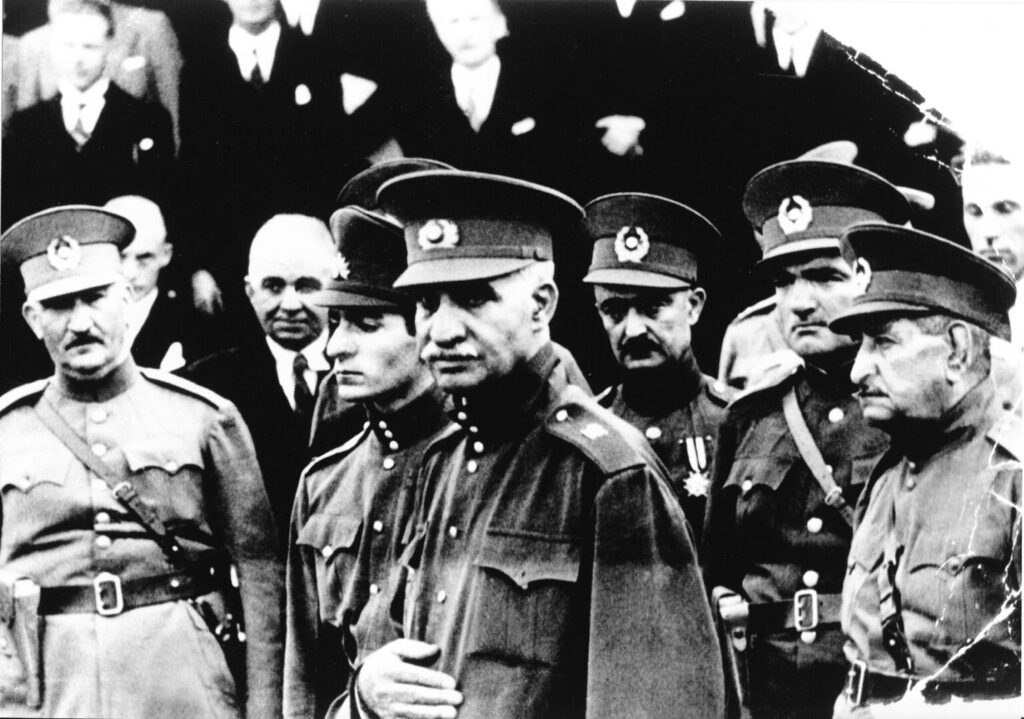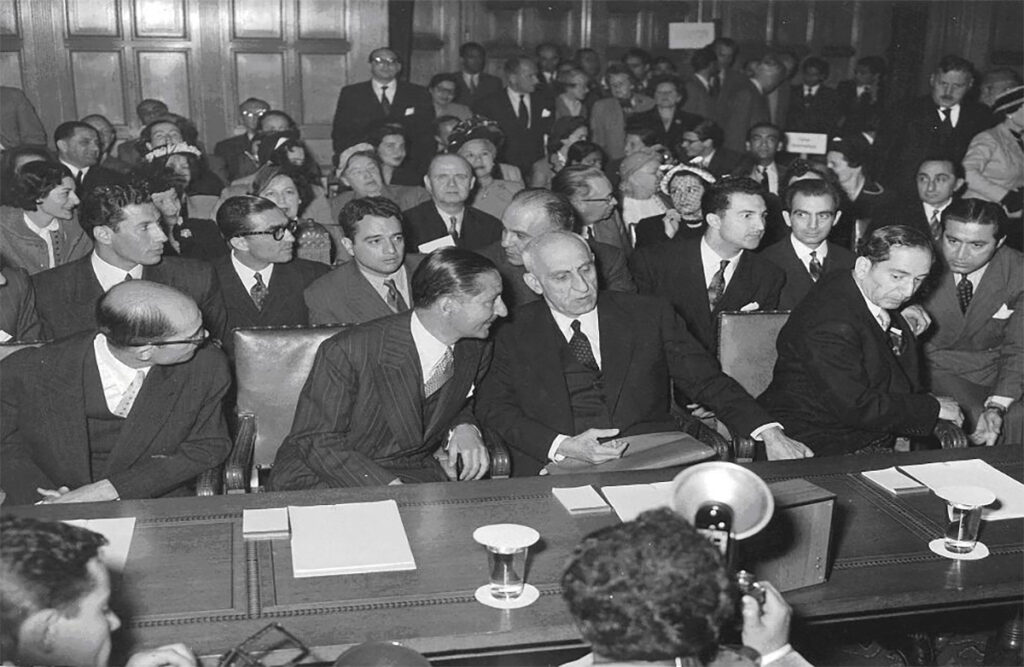Persian language news channel Iran International reports that a petition campaign has been initiated by some Iranians endorsing exiled Prince Reza Pahlavi as their representative to lead a transitional government from clerical to secular rule in Iran.
The campaign grabbed the attention and endorsement of some Iranian celebrities and athletes like Ali Karimi but drew silence from well-known anti-regime Iranian diaspora activists Nazanin Boniadi, journalist and activist Masih Alinejad, actress Golshifteh Farahani and activist Hamed Esmaeilion.
However, many ethnic peoples and political representatives with other democratic forces in the opposition were alarmed by this unilateral and unseemly campaign. Many took to social media to reject Reza Pahlavi, and his supporter’s attempt to hijack the revolution and assume leadership.
In Balochistan, many protesters held signs stating, “No to Mullah and Shah, no IRGC terrorists, Yes to freedom.” Another well-known revolutionary slogan chanted on city streets across Iran is “Death to the oppressor, whether he is the shah or the supreme leader.” If Reza Pahlavi and his supporters truly cared about democracy and human rights, they surely could not have missed the voices of the people facing guns and bullets on the streets in Iran.
Videos show protesters chanting other common slogans that reject the objectives of the Pahlavi campaign like “no monarchy, no leader (supreme leader), democracy and equality.” Even more direct was a placard held up by protesters in Zahedan, Balochistan that reads, “Reza Pahlavi is not our representative, understand that we have our representatives.”
It would be incorrect to say that Reza Pahlavi does not have supporters. Nevertheless, most Iranians do not want to sacrifice their lives in a revolution to overthrow the theocratic state of the ayatollahs only to have it replaced by the son of a previous dictator overthrown by a revolution in 1979. The Ayatollahs and Pahlavi have had decades to govern Iran but both have been impediments to democratic movements throughout Iran’s history. This among many other factors demonstrates the absurdity of the Pahlavi campaign.
Why the campaign does more harm than good
Anyone advocating for Reza Pahlavi’s leadership through this campaign is truly not in touch with reality and knows little about the law or how political processes work. The petition titled, “Prince Reza Pahlavi is my representative,” states, “Considering the revolution that is going on in Iran and considering that Reza Pahlavi asked the people of Iran to give him power of attorney to lead this movement.” There is no legal basis under domestic or international law to give someone such power. The entire premise of the campaign has no grounds in democratic processes or legal code. The campaign illustrates that Reza Pahlavi and his supporters are zealous to monopolize the revolution and secure power for themselves.
Having the Shah’s son serve as interim leader in a transitional government if the revolution successfully overthrows the Islamic Republic sends the wrong signal to people inside and outside of Iran because the people do not want to go back to the days of the monarchy. They are also firmly against the theocratic system of the Ayatollahs. The people in Iran have learned from the last revolution that getting behind a self-declared messiah (Khomeini) may lead to another authoritarian system.
If Reza Pahlavi supports women’s rights then he should step aside and let a woman lead. If monarchists want to establish the monarchy on the backs of the women and men who have died or are being tortured and imprisoned in this globally recognized women’s revolution, then I propose that one of Pahlavi’s sisters campaign for leadership. It would be quite progressive but the Pahlavi monarchy is gender biased.
Having a campaign for leadership at a time when the revolution has not succeeded in overthrowing the theocracy illustrates the immaturity of the prince and his supporters. They claim to be for democracy yet attempt to arbitrarily impose upon the people an exiled Pahlavi seeking to continue a family legacy of assimilation, forced homogenization, and authoritarianism under the guise of freedom and modernity.
Reza Pahlavi is not a unifier but a divider
In a recent interview with Manoto TV, Reza Pahlavi makes it clear that he has no democratic solution for Iran’s multitude of problems nor does he propose any governing structure that can guarantee the rights of Kurds, Baloch, Azeri and Ahwazi Arabs.
The journalist asks Pahlavi about how he views the demand by ethnic groups in Iran who say that they are ready to be a part of the coalition and an exile government if Pahlavi and others recognize them as distinct nations in a multinational Iran. His response, applauded by his supporters, shocked many others.
Pahlavi responds, “Any democratic force that believes in democratic institutions and political transparency can be a part of the political coalition that we are demanding but they must believe that the territorial integrity of Iran is a red line. Anyone who does not believe in the unity of Iran’s territory cannot be a part of the political coalition and this is our clear message for all parties.”
His dismissal of the rights of such nations as mere demands of separatism and a threat to Iran’s territorial integrity indicates that he does not believe in democracy. He seeks to hijack the Jina Revolution like Khomeini did with the 1979 Revolution and impose homogenization and assimilation much like the Islamic republic has been doing and his father before them.
Despite living in the West and having connections with many western governments, he has done little to investigate the power-sharing institutions and principles that maintain social and political cohesion in democratic countries that could serve as plausible solutions to the demands of the different nations in Iran. He resorts to the Khomenian tactics of appealing to fears and accusations instead of diplomacy and cooperation.
Is the separatist label fact or fiction?
In his recent Manoto TV Interview Pahlavi goes on to say, “Tell me what Iranian would want his country to be divided into pieces? Those who talk about separatism need to know that the chants inside Iran are nationalistic and not local or specific to any ethnic or religious group. The people want one Iran.”
None of what Reza Pahlavi says is true or helps to unite the diverse peoples who inhabit Iran. When Jina Amini died, the revolution for women, life, and freedom began in Kurdistan in her hometown and spread all over Iran. The Islamic Republic of Iran blamed the Kurds, bombed Kurdish opposition parties across the border in the KRG and even came out with statements accusing the Kurds of orchestrating the revolution with the help of Israel. This is because the revolution sparked by the death of a Kurdish girl in a Kurdish town and by a Kurdish slogan started in Kurdistan before spreading to the rest of Iran.
What the people want in Iran is freedom but that means different things to different people. This is a fact that Pahlavi and other Iranian leaders have not thought about or perhaps have chosen to ignore in favor of a more absolutist governing structure that fundamentally changes little for non-Persian nations or the establishment of a working democracy in Iran.
In the 1940s, Qazi Muhammad, president of the Kurdistan Republic, made efforts to peacefully resolve the Kurdish question through the establishment of pluralistic and democratic Iran. With the help of the Brits and Americans, the last Shah of Iran hanged Qazi for establishing an autonomous Kurdistan government and advocating for democracy in Iran.
In the 1980s, the Kurdish leader Abdul Rehman Qhassemmlou, who once said that “we will not allow anyone to claim that they are more Iranian than us Kurds,” and who made famous the slogan: Democracy for Iran, Autonomy for Kurdistan, was assassinated in Vienna by regime agents while negotiating with the Iranian state.
Similarly, his successor Dr. Sadiq Sharafkandi was assassinated in Mykonos while meeting with Iranian opposition leaders to unify opposition against the Islamic Republic. The Islamic Republic of Iran justifies the murder of the Kurdish leaders with the same argument that Reza Pahlavi makes, that they were separatists or a threat to the territorial integrity of Iran.
In addition, The Congress of Nationalities for a Federal Iran have articulated similar demands. The Congress of Nationalities for a Federal Iran which is an alliance of political parties and advocacy groups campaigning to replace the current Islamist government system in Iran with a secular, democratic, federal government has also rejected these allegations of separatism.
None of these nations demand independence or separation from Iran, yet, monarchists like Pahlavi and the Islamic Republic both continue this rhetoric of separatism and territorial integrity because they do not want to share power and build a tolerant and pluralistic democracy in Iran that recognizes the fundamental rights of all nations in Iran.
It has been 72 years since the establishment of the Iranian nation-state. The Kurds and others continue to struggle for their rights as nations yet Iranian leaders like Reza Pahlavi and the Ayatollahs continue to label them as threats to territorial integrity.
The separatism accusation illustrates that Iranian leaders in the monarchist and Islamist camps continue to hold outdated views about demands for self-determination and democracy that make them unfit to lead Iran.
If Iran fragments into separate states like the former Yugoslavia did in the 1990s, It will not be because the non-Persian nations did not try to resolve their issues peacefully and democratically. It will be because the Iranian state forced upon the various peoples a policy of assimilation and homogenization to erase the identity of marginalized nations in Iran.
The views expressed in this article are the author’s own and do not necessarily reflect Fair Observer’s editorial policy.
Support Fair Observer
We rely on your support for our independence, diversity and quality.
For more than 10 years, Fair Observer has been free, fair and independent. No billionaire owns us, no advertisers control us. We are a reader-supported nonprofit. Unlike many other publications, we keep our content free for readers regardless of where they live or whether they can afford to pay. We have no paywalls and no ads.
In the post-truth era of fake news, echo chambers and filter bubbles, we publish a plurality of perspectives from around the world. Anyone can publish with us, but everyone goes through a rigorous editorial process. So, you get fact-checked, well-reasoned content instead of noise.
We publish 2,500+ voices from 90+ countries. We also conduct education and training programs
on subjects ranging from digital media and journalism to writing and critical thinking. This
doesn’t come cheap. Servers, editors, trainers and web developers cost
money.
Please consider supporting us on a regular basis as a recurring donor or a
sustaining member.
Will you support FO’s journalism?
We rely on your support for our independence, diversity and quality.










Comment